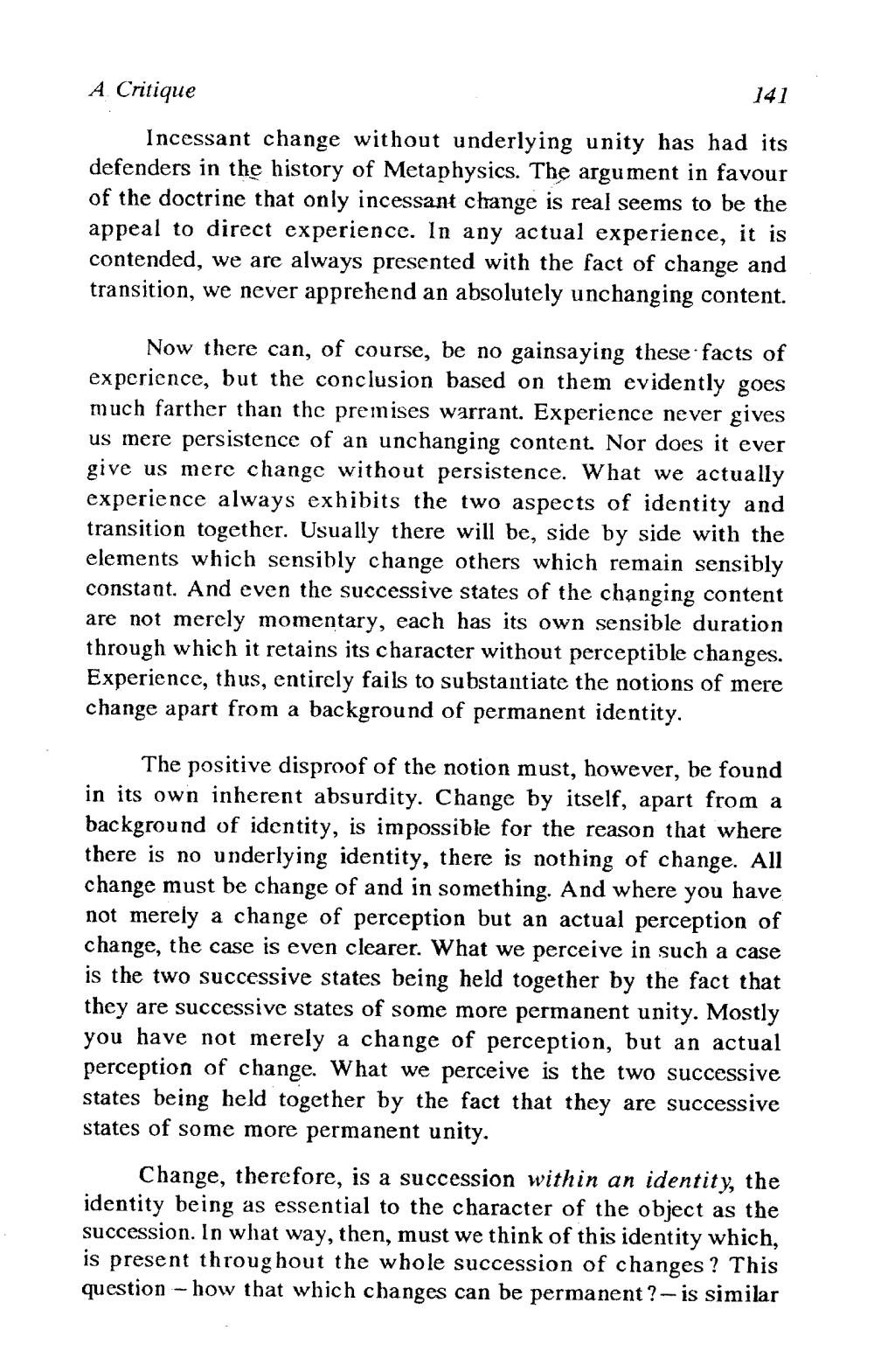________________
A Critique
Incessant change without underlying unity has had its defenders in the history of Metaphysics. The argument in favour of the doctrine that only incessant change is real seems to be the appeal to direct experience. In any actual experience, it is contended, we are always presented with the fact of change and transition, we never apprehend an absolutely unchanging content.
141
Now there can, of course, be no gainsaying these facts of experience, but the conclusion based on them evidently goes much farther than the premises warrant. Experience never gives us mere persistence of an unchanging content. Nor does it ever give us mere change without persistence. What we actually experience always exhibits the two aspects of identity and transition together. Usually there will be, side by side with the elements which sensibly change others which remain sensibly constant. And even the successive states of the changing content are not merely momentary, each has its own sensible duration through which it retains its character without perceptible changes. Experience, thus, entirely fails to substantiate the notions of mere change apart from a background of permanent identity.
The positive disproof of the notion must, however, be found in its own inherent absurdity. Change by itself, apart from a background of identity, is impossible for the reason that where there is no underlying identity, there is nothing of change. All change must be change of and in something. And where you have not merely a change of perception but an actual perception of change, the case is even clearer. What we perceive in such a case is the two successive states being held together by the fact that they are successive states of some more permanent unity. Mostly you have not merely a change of perception, but an actual perception of change. What we perceive is the two successive states being held together by the fact that they are successive states of some more permanent unity.
Change, therefore, is a succession within an identity, the identity being as essential to the character of the object as the succession. In what way, then, must we think of this identity which, is present throughout the whole succession of changes? This question how that which changes can be permanent?- is similar
-




